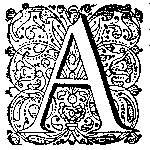Domesticating Human Capital
The Material Culture of Knowledge in Early Modern Amsterdam
DOI:
https://doi.org/10.51750/emlc18538Keywords:
material culture, human capital, intellectual history, craftsmanship, Scientific Revolution, EnlightenmentAbstract
This article investigates the consumption of knowledge in early modern Amsterdam. A dataset of seventeenth- and eighteenth-century probate inventories is employed to examine the synergies and inequalities between the skilled and educated middle classes and the intellectual elites. A series of democratisation waves in the ownership of books, writing equipment, and measuring tools confirms the unprecedented levels of basic literacy and numeracy skills in the urban centres of the early modern Low Countries revealed by research on signature proficiency and age heaping. The concentration of secular books and advanced knowledge objects in the hands of a small but growing group of affluent households, on the other hand, corresponds to other research that has fixated instead on the role of upper-tail human capital in scientific, technological, and economic progress. Yet, the relatively low value estimates of libraries and scientific instruments, together with a more qualitative examination of two amateur scientists of middling background, dovetails with the hypothesis that the Dutch Scientific Revolution and Enlightenment were marked by a close interaction and mobility between craftsmen and scientists. An above-average income and enough leisure time to develop intellectual interests could be sufficient for inhabitants of Amsterdam to cross the Rubicon from consuming to (re)producing knowledge.
Downloads

Published
Issue
Section
License
Copyright (c) 2024 Lotte Kemps, Bas Spliet

This work is licensed under a Creative Commons Attribution-NonCommercial 4.0 International License.





